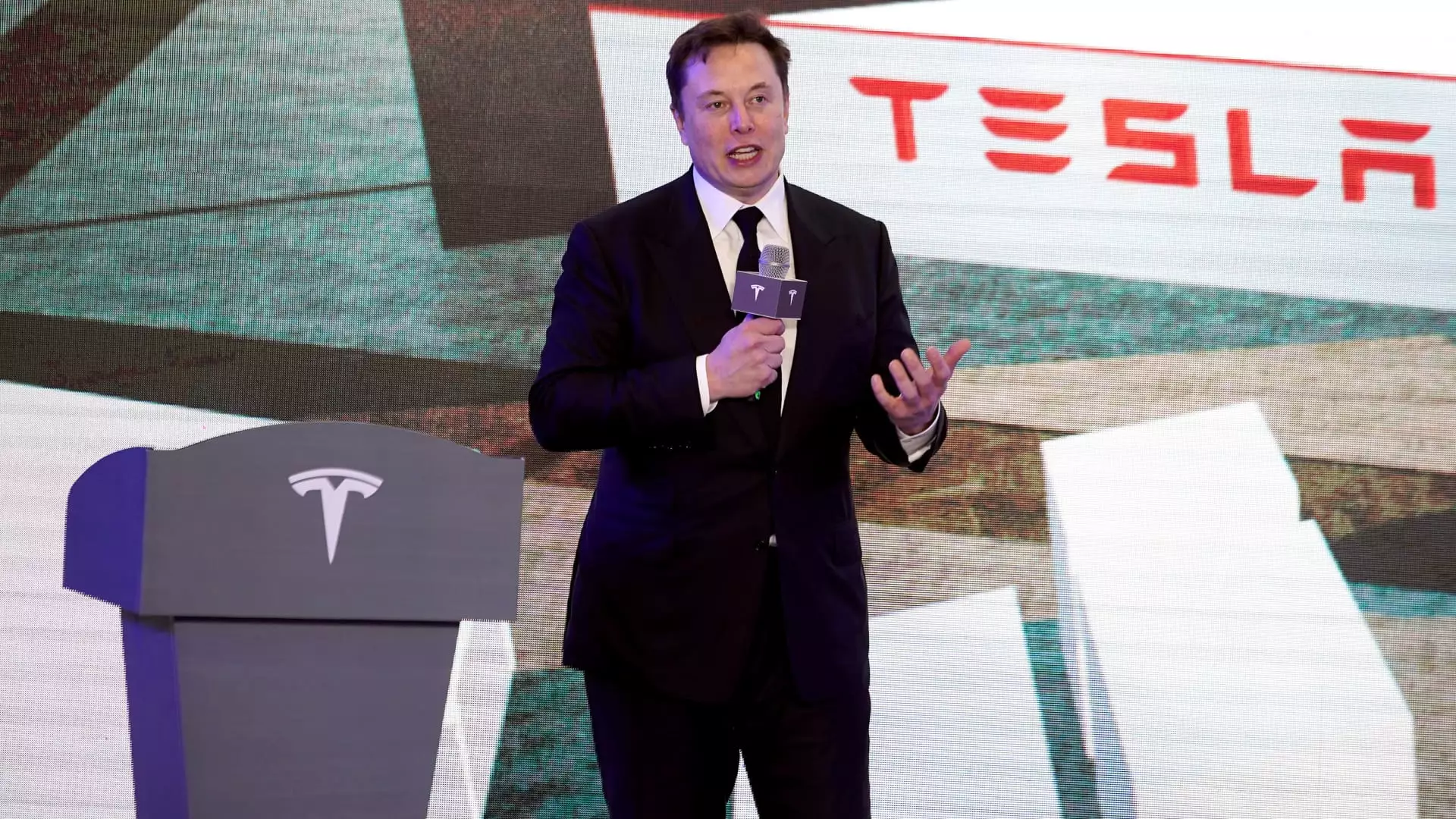In a striking move that reinforces the growing trend toward corporate consolidation, Tesla has recently enacted a significant alteration to its corporate bylaws, effectively limiting the avenues through which shareholders can initiate lawsuits against the company’s executives and board members. This decision is a reflection of a broader pattern in corporate governance that empowers management at the expense of shareholder influence. The ripple effect of this amendment, which took effect on May 15 and requires shareholders to own at least 3% of the company’s outstanding shares to bring legal action, poses serious questions about the future of accountability within one of the most valuable companies in the auto industry.
Tesla, now valued at around $1 trillion, is undeniably a behemoth in the market, and this new threshold effectively acts as a moat for its decision-makers. By instituting such a barrier, Tesla’s leadership is clearly attempting to safeguard themselves from legal scrutiny, especially in a highly litigious environment that includes claims of fiduciary breach. At a time when many corporations are facing increasing demands for transparency and accountability, Tesla’s leadership seems to be sidestepping such scrutiny, raising eyebrows among those who care about shareholder rights.
Leveraging Texas Laws for Corporate Advantage
This policy change capitalizes on Texas law, which permits corporations registered in the state to erect barriers against shareholder lawsuits involving fiduciary duty breaches. Ann Lipton, a corporate law expert and professor at Tulane, has pointed out that this legislation provides Tesla with a significant legal advantage. With the minimum 3% ownership threshold set, the reality is that only a select group of financially powerful investors will have the means to challenge the board’s decisions, effectively marginalizing ordinary shareholders who may have genuine grievances.
Historically, corporations established in Delaware—which had long been the preferred choice due to its advanced business laws—fostered a climate where even minor shareholders could invoke their rights. The infamous Tornetta case revealed the vulnerabilities within Tesla’s governance, as the Delaware court found that the company’s board acted not in the company’s best interests but rather in a manner that favored Elon Musk. With this relocation to Texas, Tesla has made it explicit that it intends to favor a more protective legal framework.
A Diminished Voice for the Average Investor
This strategic modification to Tesla’s bylaws indicates a broader shift in corporate governance—one that increasingly prioritizes management’s desires while systematically constraining shareholder involvement. By requiring a significant financial stake for legal action, Tesla is not only making it difficult for average investors to voice their discontent but is also creating an environment where such concerns could potentially go unaddressed. This represents a troubling trajectory for corporate democracy where wealth translates directly into power, leaving smaller investors at a distinct disadvantage.
As the tech and automotive sectors evolve, companies like Tesla are setting precedents that could encourage similar moves by other corporations. This trend poses implications for the broader corporate landscape, where shareholder rights could further erode, particularly in states like Texas that are willing to support such corporate maneuvers.
The Implications for Tesla and Beyond
Tesla’s decision to fortify its corporate structures reflects a thirst for stability and control as it navigates increasingly complex market dynamics. While this approach may shield the company from immediate accountability, it raises critical ethical questions regarding the balance of power in corporate governance. Will this newfound insulation from litigation engender irresponsible risk-taking among executives who feel impervious to shareholder concerns?
The consequences of such moves are likely to resonate beyond Tesla’s walls. As the lines blur between corporate accountability and executive control, a troubling precedent may emerge—one where the need for shareholder oversight is viewed as an impediment rather than a fundamental component of good corporate governance. Such transformations call for heightened vigilance from investors and regulators alike to ensure that the interests of all shareholders are adequately protected in the face of a rapidly diversifying corporate landscape.
Tesla may be laying the groundwork to redefine shareholder dynamics, but as ordinary investors become increasingly sidelined, the effects of this paradigm shift could have far-reaching implications in the realm of corporate governance for years to come.

